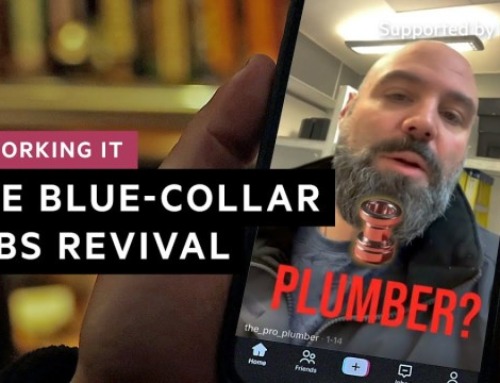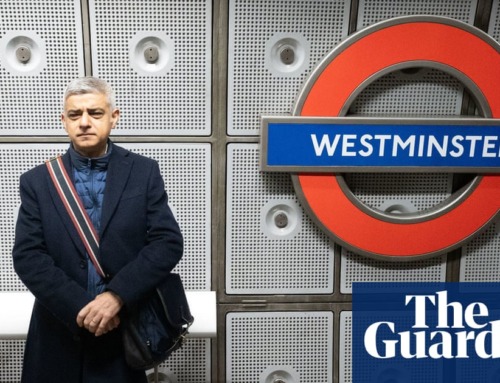Lab Weekly — 08/15/2025 On streaming’s new “profit era”; Plus, the lates news about AI companions, a McDonaldland revival, Neflix’s theatrical events, and more must-know news and stats
Want this newsletter in your inbox every week? Sign up for our mailing list here

New bundling strategies and consolidations signal a new playbook for entertainment brands

This week, Amazon’s investment in Fabel Studio, a startup behind an AI streaming platform called “Showrunner” that lets paying subscribers use AI to create animated shows or build on existing IP, is a good indicator of how fast things are changing in Hollywood in regards to AI creative tools. So I updated my article last week with some new examples and additional musings on this topic. Please scroll to the end to read.
The AI-Powered Future of Travel
For travel and hospitality brands, there are three other interesting ways that the growing consumer adoption of AI chatbots — and perhaps soon, AI agents — will start to impact their ways of booking and planning trips, as well as how they enjoy their trips.

When GPT-5 launched last week on August 7, OpenAI also removed GPT-4o and other previous models from ChatGPT, forcing all users to use the latest model. Some users complained that GPT-5 felt colder, less creative, and overly filtered compared to GPT-4o’s warmer, more conversational tone. The sudden loss of agency prompted a wave of backlash, with users saying the change hurt both productivity and the personal connection they’d built with the tool.
In response, OpenAI quickly restored the Model Picker for paid users, bringing back GPT-4o and other legacy models alongside GPT-5. The company also promised tone and customization improvements for GPT-5, and pledged to give users more warning and flexibility before retiring older models in the future.
To me this incident shed light on two issues. One is some users’ growing emotional dependency on AI chatbots. Beyond ChatGPT, which recently hit 700 million weekly active users, there have been a slew of other AI companies, such as Character.AI and Replika that are specifically building AI companion bots. According to Appfigures’ estimates, AI companion apps are on track to generate over $120 million in revenue in 2025. Character.AI says it has amassed 20 million users who spend, on average, 75 minutes a day chatting with a bot. The 2013 sci-fi movie Her is already a reality for some people.
Two, as Ben Thompson at Stratechery points out, GPT-5’s technical performance and capability matter less than the product layer choices OpenAI made around it. By removing GPT-4o without warning, OpenAI underestimated how much users valued not just functionality, but also familiarity, trust, and control. Sometimes, how you roll out a new product is as important, if not more so, as the quality of the product itself. It’s a lesson that more brand marketers need to internalize.
Related: Character.AI is adding a social feed to its app [TechCrunch]; Teens say they are turning to AI for friendship [AP News]
Mcdonald’s Brings Back Mcdonaldland To Unlock Consumers’ ‘Core Memories’ [Marketing Dive]
The fast-food chain’s latest nostalgic campaign is not only retro. It also includes a website, TV commercial, experiential activations, a Fortnite takeover, Snapchat AR activations, and brand collaborations. McDonald’s will also extend this campaign with a VR experience available through Meta Horizon Worlds and web-based VR.
While the “metaverse” may have fallen out of buzzword status, but its mechanics have quietly embedded themselves into mainstream brand marketing. Roblox, Fortnite, and similar platforms are now less about selling the big, utopian future of the internet and more about functioning as highly trafficked, always-on media channels where brands can drop interactive worlds, timed events, and digital merch.
In that context, McDonald’s McDonaldland revival is less a throwback stunt and more a savvy use of these always-on virtual ecosystems to make nostalgia participatory. By putting Ronald McDonald and friends into Fortnite and VR spaces, the brand isn’t just evoking childhood memories — it’s letting consumers actively play inside them.
Related: Fenty enters Roblox retail race with shoppable gloss experience [Glossy]; Olipop to debut a limited-edition soda flavor with a Roblox gaming experience with SpongeBob tie-in [Marketing Dive]
Netflix to Host Special KPop Demon Hunters Sing-Along Events in Theaters [Netflix blog]
Determined to keep the momentum going on its latest surprise hit, K‑Pop Demon Hunters, Netflix is set to host special sing‑along events in theaters, set for one weekend only later this month. K‑Pop Demon Hunters has become Netflix’s most‑watched animated original film of all time, with viewership numbers ranging from 158 million to over 180 million streams since its June 20 debut. The soundtrack is also a hit, with the song “Golden” recently hitting №1 on the Billboard Hot 100 chart.
Interestingly, Jeremy Fuster at The Wrap argues that this ‘Kpop Demon Hunters’ craze couldn’t have happened in movie theaters. Because it is a Netflix release and thus bypassed a traditional theatrical release, the film sidestepped the heavy marketing spend and opening-weekend pressure that often doom original animated features. Also its immediate availability for rewatching, especially by kids and families, kept engagement high and allowed for organic, global word-of-mouth without expensive pre-release hype.
Still, now that the film has become a streaming hit, Netflix is eager to bring it to the theaters to further amplify its buzz and build a real cultural phenomenon and future franchise. We’ve been seeing more entertainment brands investing in offline fan events, reflecting a broader trend of a hybrid strategy that blends digital distribution with live or free-roam-style in-person interactions.
Related: The American Cinematheque’s ‘Friend of the Fest’ brings your favorite movies and podcasts together [Indiewire]
Situational Awareness: Instagram adds a reposts feed and a Maps feature for location sharing [The Verge]
The new Reposts feed and Friends tab boost peer-driven discovery, letting users share others’ content with credit and surface posts friends engage with. Brands could leverage these features to organically curate creator content for their own page. The new Maps feature enables opt-in location sharing and geo-tagged content discovery, opening hyper-local marketing and event promotion opportunities.
Walmart starts selling Labubu, some for $200-plus, via StockX [Modern Retail]
Walmart is jumping on the Labubu craze (have you seen the 24k-gold version?) by offering these viral bag-charm dolls, along with some other collectibles from Pop Mart, on its third-party Marketplace through a partnership with StockX. This move follows Walmart’s earlier collaboration with Rebag for luxury handbags and watches, demonstrating an ongoing strategy of partnering with resale platforms to diversify its product offerings.
Mini IKEA stores will be opening inside select Best Buy locations this year [The Verge]
IKEA is opening mini retail experiences in a handful of Best Buy stores in the southern US later this year. The partnership targets customers already shopping for appliances, aiming to capture home-upgrade spending and boost brand awareness in a new retail context. Oddly, IKEA won’t be bringing its line of smart home gadgets to these mini-stores, even though you’d think there would be some overlapping customer interests for Best Buy shoppers.
Lyft partners with Baidu to launch autonomous vehicles in Europe next year [Bloomberg]
The robotaxi deployment continues globally, as Lyft finds a partnership with China’s Baidu to enter the European market, with initial launches planned for Germany and the UK in 2026 pending regulatory approval. The complication here is that Uber also signed a similar deal with Baidu last month to have its driverless cars on the Uber app, but the initial deployment later this year is planned for Asia and the Middle East, not Europe. However, the Lyft deal is not exclusive, meaning it won’t preclude Uber from rolling out Baidu robotaxis in the same markets in the future.
- Meta recently shared that its X competitor Threads now has 400 million monthly active users (MAUs), up from 350 million MAUs in April, per Fast Company.
- Creators on Patreon have received more than $10 billion in payments since the company’s founding in 2013, CEO and co-founder Jack Conte said, Axios reports.
- The biggest barriers holding back adoption were trust and safety. When it comes to handing over the reins of back-office functions to autonomous systems, respondents to a recent EY survey said they were worried about the cybersecurity implications (35%), data privacy headaches (30%), insufficient regulation (21%), and lack of company policies (21%). Nearly two-thirds (64%) said they think fears of AI replacing humans will prove an obstacle, though only 24% reported employee resistance as a barrier.
- Quick service dining from Applebee’s to Sweetgreen are continuing to sound the warning bell around consumers continually going out to eat less in 2025, according to the Financial Times. Fast food visit traffic overall was -2.3% in Q2, according to an industry tracking firm, and many of those who come out are ordering the cheaper menu items.
If you find our insights valuable and would like to have a deeper conversation on technology and media innovations, or need to sound smarter in a client meeting or a pitch, please feel free to reach out to Ryan Miller, our Director of Partnerships, at ryan.miller@ipglab.com.
If you liked this edition of Lab Weekly by IPG Media Lab, why not share it?
Lab Weekly — 08/15/2025 was originally published in IPG Media Lab on Medium, where people are continuing the conversation by highlighting and responding to this story.








